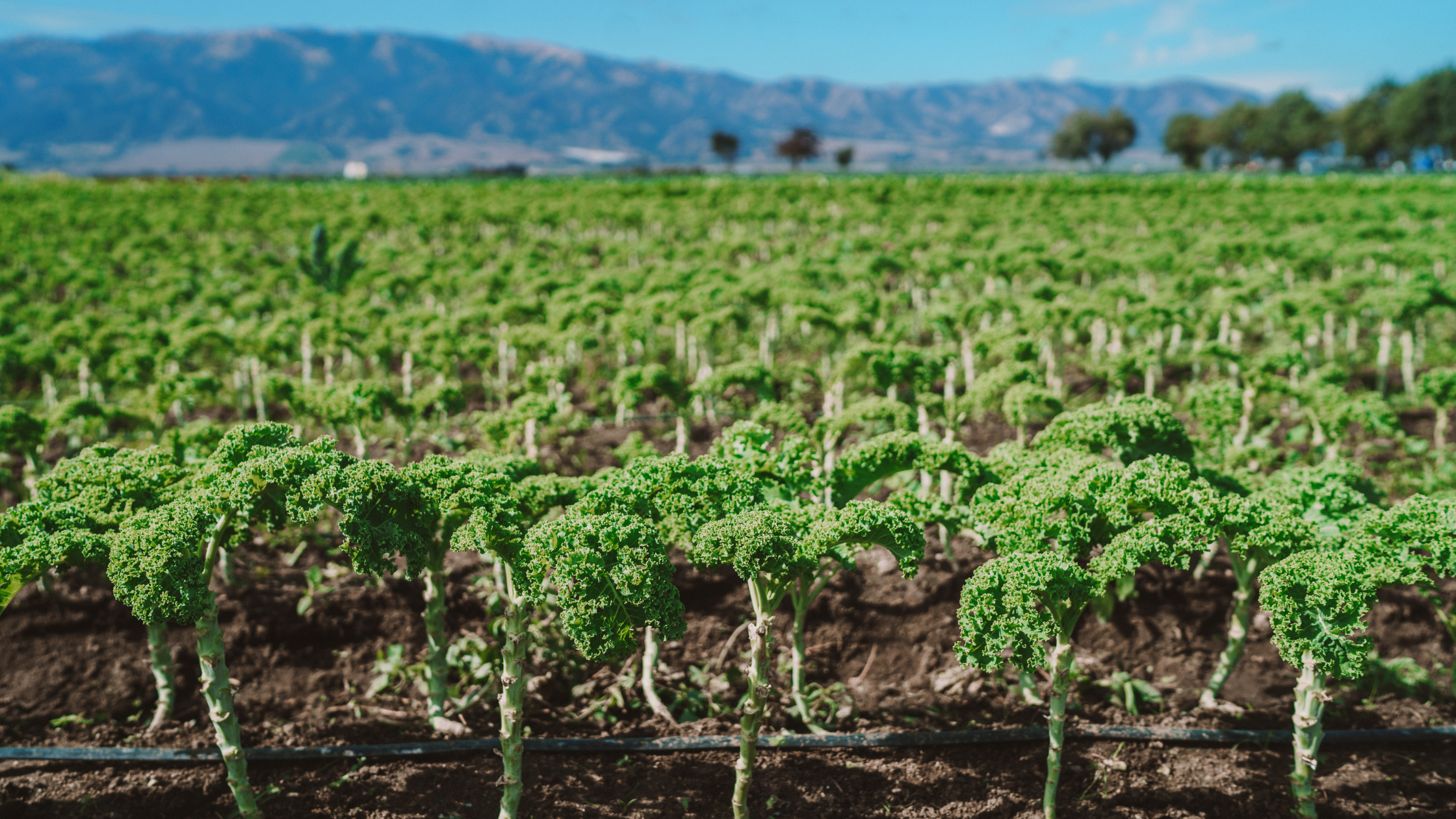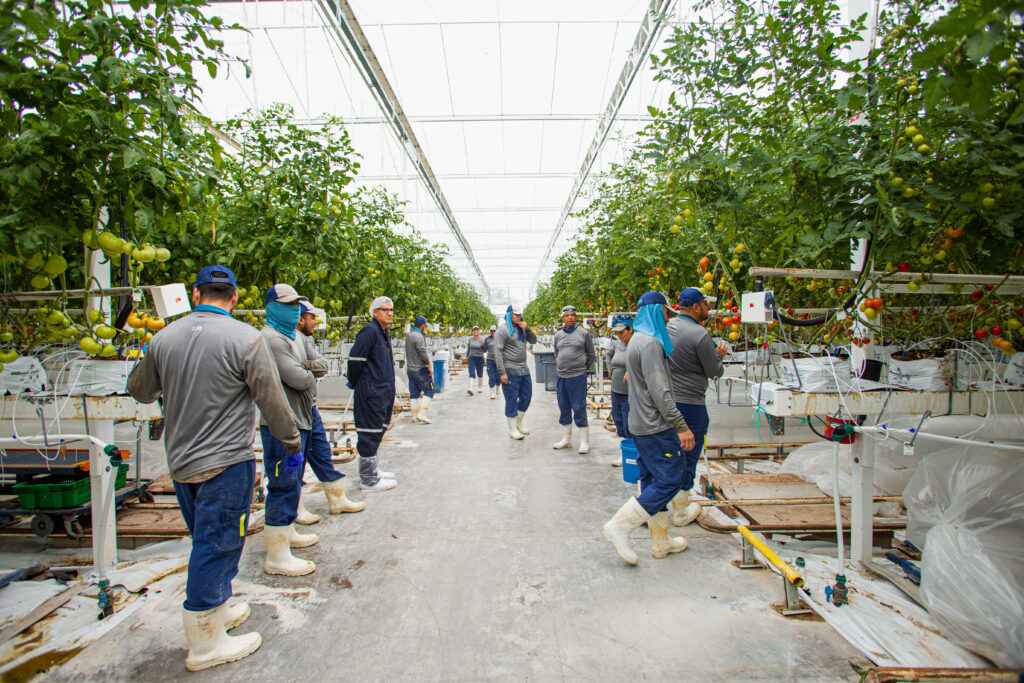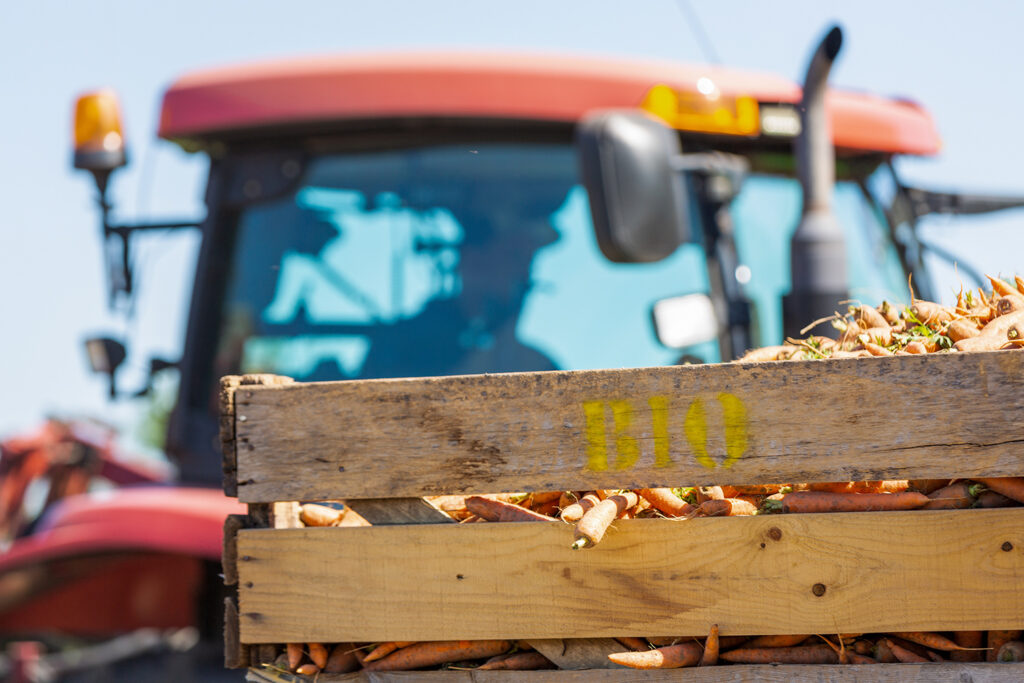Select your operation type:
-
Operations certified to the National Organic Program (NOP) can ship to Canada. The arrangement recognizes the NOP standards and the COR standards as equivalent, with minor critical variances.
Product from anywhere in the world certified to NOP standards may be shipped to Canada and use the Canadian Organic Logo as long as the critical variances and the arrangement terms are met.
- Products must be produced without the use of sodium nitrate (Chilean nitrate).
- Products must not be produced using hydroponic or aeroponic methods.
- Livestock products (other than from ruminants) must be from animal systems that meet the stocking rates as set forth in the Canadian Standard (CAN/CGSB 32.310-2020)
All exporters to Canada must enroll in the Global Market Access (GMA) Program. If you supply products to a CCOF-certified buyer and do not export yourself, you may provide a supplier self-attestation rather than enrolling the GMA program.
Products outside the scope of the Canadian Organic Regime, such as pet food, personal care products, and natural health products may not be exported to Canada under this equivalence arrangement. More information regarding natural health products can be found here. NOP certified products outside the scope of COR may be sold in Canada as NOP certified without additional verification. In these cases, reference to COR is prohibited.
The CCOF GMA program does not include the Canada Mexico Organic Equivalency Arrangement (CMOEA) at this time. If your operation is located in Mexico and you export to Canada, CCOF will review your products to the U.S./Canada equivalence arrangement under the GMA program.
-
If you source products or ingredients that will be exported to Canada, they must be verified as meeting the terms of the equivalence. Many crops are not at risk of being grown using one of the production techniques outlined as a critical variance. To ensure the Equivalence Arrangement verification process is as simple and efficient as possible, CCOF has created a list of crops that are at high risk of being grown using one of the prohibited production techniques.
Suppliers of high risk crops: If ingredients are high risk, you must provide certifier verification or a supplier self-attestation that the crops were grown without the use of sodium nitrate and/or hydroponic or aeroponic production.
Suppliers of crops not identified as high risk: If ingredients are not high risk, CCOF will not seek additional documentation that the crops meet the critical variances, a USDA NOP organic certificate is sufficient.
Suppliers of non-ruminant livestock products: All livestock products from non-ruminants, such as eggs from poultry, must be verified as having met the stocking density critical variance. You must provide certifier verification or supplier self-attestation.
Suppliers of ruminant livestock products: CCOF will not seek additional documentation, a USDA NOP organic certificate is sufficient.
-
- Container grown annual crops (excluding annual seedlings)
- Container grown strawberries
A self-attestation must be provided if it is not clear whether annual crops or strawberries were grown in containers.
-
- Carrots
- Celery
- The following cole crops: broccoli, brussels sprouts, cabbage, cauliflower, collards, kale, and kohlrabi
- Fresh tomatoes
- The following leafy greens: lettuces, escarole, endive, spring mix, spinach, cabbage, kale, arugula, and chard
- Grains grown for livestock feed in the Midwest United States
- Onions
- Potatoes
- Tobacco
- Citrus from the Southeast United States
-
Review the GMA Manual and complete the GMA Application. Completed applications can be submitted to inbox@ccof.org.
Operations certified to the National Organic Program (NOP) can ship to Canada. The arrangement recognizes the NOP standards and the COR standards as equivalent, with minor critical variances.
Product from anywhere in the world certified to NOP standards may be shipped to Canada and use the Canadian Organic Logo as long as the critical variances and the arrangement terms are met.
- Products must be produced without the use of sodium nitrate (Chilean nitrate).
- Products must not be produced using hydroponic or aeroponic methods.
- Livestock products (other than from ruminants) must be from animal systems that meet the stocking rates as set forth in the Canadian Standard (CAN/CGSB 32.310-2020)
All exporters to Canada must enroll in the Global Market Access (GMA) Program. If you supply products to a CCOF-certified buyer and do not export yourself, you may provide a supplier self-attestation rather than enrolling the GMA program.
Products outside the scope of the Canadian Organic Regime, such as pet food, personal care products, and natural health products may not be exported to Canada under this equivalence arrangement. More information regarding natural health products can be found here. NOP certified products outside the scope of COR may be sold in Canada as NOP certified without additional verification. In these cases, reference to COR is prohibited.
The CCOF GMA program does not include the Canada Mexico Organic Equivalency Arrangement (CMOEA) at this time. If your operation is located in Mexico and you export to Canada, CCOF will review your products to the U.S./Canada equivalence arrangement under the GMA program.
-
To obtain COR certification from CCOF, organic operations located in Canada must:
- Review the CCOF COR Compliance Program Manual
- Become familiar with the Canadian Organic Standards
- Information regarding the Canada Organic Regime is maintained on the CFIA Organic Products page.
- Basic production standards: Organic Production Systems General Principles and Management Standards (CGSB)
- Permitted Substances List (PSL)
- SFCR Part 13
- Canada Organic Regime Operating Manual — Contains requirements for Certification Bodies (CB) such as CCOF as well as procedural requirements applicable to operations who are seeking or maintaining COR certification.
- Complete the CCOF COR Organic System Plan and COR Compliance Program Application
- Be inspected and approved by CCOF
If part of your operation is in Canada and part is in the United States, it is necessary for you to have two separate certifications with CCOF. The facilities in Canada must be certified to COR and cannot be certified to the NOP. The facilities in the United States must be certified to the NOP and cannot be certified to COR.
-
You can find CCOF clients certified to the COR standards in real time by accessing our online directory and checking the Canada Organic Regime (COR) Certified box under “Certification”.
Regulatory Bodies in Canada
- Canadian Food Inspection Agency (CFIA): Implements standards, approves Conformity Verification Bodies (CVB), accredits certifiers (with CVB recommendation), and negotiates equivalency agreements.
- Canadian General Standards Board: Develops standards and materials lists as part of a public consensus-based process. Composed of several working groups: PSL, Crops, Livestock, Processing.
-
The Canadian government has established organic equivalence arrangements with other major organic markets, allowing your COR certified products to be exported and sold as organic in those countries and allowing your operation to source organic products from those countries. Each equivalence arrangement has specific terms that must be met and verified by CCOF in order to export organic product from Canada to that specified location.
CCOF’s Global Market Access (GMA) program provides your operation and products with the necessary review and documentation to export your COR organic products to the US, Japan, EU, UK, Switzerland and Taiwan. Enrollment in GMA is required for each market and can be done by reviewing the GMA Manual and submitting a GMA application to inbox@ccof.org.
Please follow the links below to learn more about equivalency terms and export/import requirements or email export@ccof.org for further information.
- Canada-U.S. Equivalence Arrangement
- Canada-Japan Equivalence Arrangement
- Canada-EU/UK and Canada-Switzerland Equivalence Arrangements
- Canada-Taiwan Equivalence Arrangement
If you are interested in exporting organic products to Mexico or Costa Rica, please contact export@ccof.org.
-
- Review the COR Compliance Program Manual and complete the COR Application.
- If exporting, review the GMA Manual and complete the GMA Application.
- All completed applications can be submitted to inbox@ccof.org.
To obtain COR certification from CCOF, organic operations located in Canada must:
- Review the CCOF COR Compliance Program Manual
- Become familiar with the Canadian Organic Standards
- Information regarding the Canada Organic Regime is maintained on the CFIA Organic Products page.
- Basic production standards: Organic Production Systems General Principles and Management Standards (CGSB)
- Permitted Substances List (PSL)
- SFCR Part 13
- Canada Organic Regime Operating Manual — Contains requirements for Certification Bodies (CB) such as CCOF as well as procedural requirements applicable to operations who are seeking or maintaining COR certification.
- Complete the CCOF COR Organic System Plan and COR Compliance Program Application
- Be inspected and approved by CCOF
If part of your operation is in Canada and part is in the United States, it is necessary for you to have two separate certifications with CCOF. The facilities in Canada must be certified to COR and cannot be certified to the NOP. The facilities in the United States must be certified to the NOP and cannot be certified to COR.



